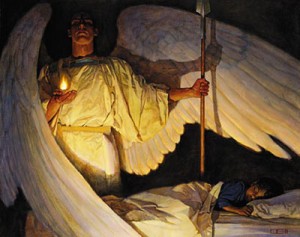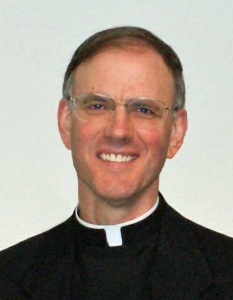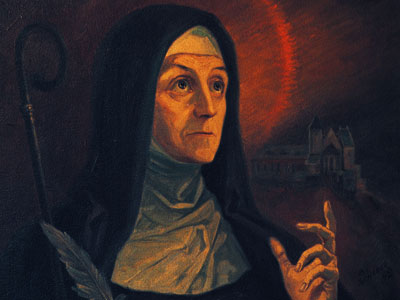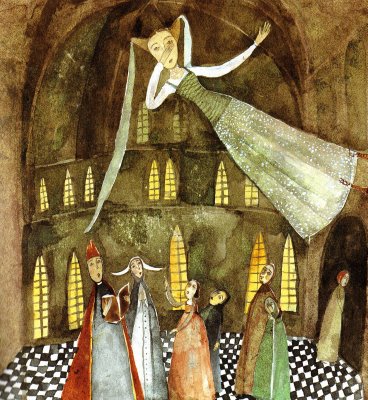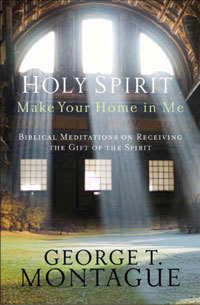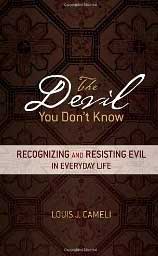CW2 – Praying with the Angels  – The Great Cloud of Witnesses: Guides 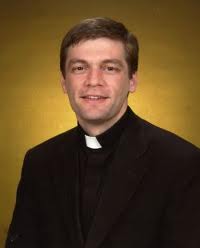 for Prayer with Fr. Mark Cyza
for Prayer with Fr. Mark Cyza
[powerpress]
Fr. Mark Cyza discusses the Angels. Â Guardian Angels and their purpose, as well as, how to pray with our Guardian Angel is part of the teaching he touches upon. Â He also touches upon the difference between the Holy Angels and the Fallen Angels, what is the proper understanding we should have concerning them.
 From the Catechism of the Catholic Church
The existence of angels – a truth of faith
328Â The existence of the spiritual, non-corporeal beings that Sacred Scripture usually calls “angels” is a truth of faith. The witness of Scripture is as clear as the unanimity of Tradition.
329 St. Augustine says: “‘Angel’ is the name of their office, not of their nature. If you seek the name of their nature, it is ‘spirit’; if you seek the name of their office, it is ‘angel’: from what they are, ‘spirit’, from what they do, ‘angel.'”188 With their whole beings the angels are servants and messengers of God. Because they “always behold the face of my Father who is in heaven” they are the “mighty ones who do his word, hearkening to the voice of his word”.189
330 As purely spiritual creatures angels have intelligence and will: they are personal and immortal creatures, surpassing in perfection all visible creatures, as the splendor of their glory bears witness.190
331 Christ is the center of the angelic world. They are his angels: “When the Son of man comes in his glory, and all the angels with him. . “191 They belong to him because they were created through and for him: “for in him all things were created in heaven and on earth, visible and invisible, whether thrones or dominions or principalities or authorities – all things were created through him and for him.”192 They belong to him still more because he has made them messengers of his saving plan: “Are they not all ministering spirits sent forth to serve, for the sake of those who are to obtain salvation?”193
332Â Angels have been present since creation and throughout the history of salvation, announcing this salvation from afar or near and serving the accomplishment of the divine plan: they closed the earthly paradise; protected Lot; saved Hagar and her child; stayed Abraham’s hand; communicated the law by their ministry; led the People of God; announced births and callings; and assisted the prophets, just to cite a few examples.194Â Finally, the angel Gabriel announced the birth of the Precursor and that of Jesus himself.195 (more…)
Tags: Church, faith, Mark Cyza, truth
This entry was posted on Wednesday, October 2nd, 2013 at 1:58 am
You can follow any responses to this entry through the RSS 2.0 feed.
Stunning…simply stunning. I love “Mysteries of the Virgin Mary: Living Our Lady’s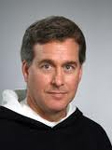 Graces”! A beautiful and lovingly assembled collection of and meditations on the 13 principal Marian mysteries celebrated by the Church. From the sound theological foundations for our devotion to Our Lady to the reflections and teachings of the saints, Fr. Peter John Cameron, founding editor-in-chief of the monthly worship aid Magnificat, has given us a wonderful resource to deepen our walk with the Blessed Mother of God.
Graces”! A beautiful and lovingly assembled collection of and meditations on the 13 principal Marian mysteries celebrated by the Church. From the sound theological foundations for our devotion to Our Lady to the reflections and teachings of the saints, Fr. Peter John Cameron, founding editor-in-chief of the monthly worship aid Magnificat, has given us a wonderful resource to deepen our walk with the Blessed Mother of God.
[powerpress]
 You kind find this book at www.servantbooks.org
You kind find this book at www.servantbooks.org
Here is the extended web-exclusive edition of our “Inside the Pages” interview with Fr. Cameron[powerpress url=”http://www.old.discerninghearts.com/interviews/Inside_the_Pages-Fr_Peter_John_Cameron_special_extended_edition.mp3″]Download (right click & choose “Save Link As”)
Tags: blessed mother, Church, devotion, graces, marian, meditations, mother of god, mysteries, peter john cameron, reflections, saints, servant books, virgin mary
This entry was posted on Thursday, September 12th, 2013 at 11:13 am
You can follow any responses to this entry through the RSS 2.0 feed.
Join Teresa Monaghen, of Pro Sanctity, as she offers a “Personal Plan for Holiness”. Listen along with these short, but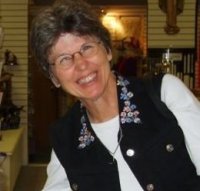 beautiful meditations which encourage us to continue on our journey as “saints in the making”!
beautiful meditations which encourage us to continue on our journey as “saints in the making”!
[powerpress]
Learn more about Pro Sanctity at www.prosanctity.org
Tags: Join Teresa Monaghen, meditations, personal plan for holiness, pro sanctity, saints, teresa monaghen
This entry was posted on Friday, September 6th, 2013 at 12:08 am
You can follow any responses to this entry through the RSS 2.0 feed.
In the persons who are going on intensely cleansing their sins and rising from good to better in the service of God our Lord, it is the method contrary to that in the first Rule, for then it is the way of the evil spirit to bite, sadden and put obstacles, disquieting with false reasons, that one may not go on; and it is proper to the good to give courage and strength, consolations, tears, inspirations and quiet, easing, and putting away all obstacles, that one may go on in well doing.
.[powerpress]
The Discernment of  Spirits: Setting the Captives Free – Serves as an introduction to the coming series and the Spiritual Exercises of St. Igantius of Loyola
Father Timothy M. Gallagher, O.M.V., was ordained in 1979 as a member of the Oblates of the Virgin Mary, a religious community dedicated to retreats and spiritual formation according to the Spiritual Exercises of St. Ignatius. Â Fr. Gallagher is featured on the EWTN series “Living the Discerning Life: Â The Spiritual Teachings of St. Ignatius of Loyola”.
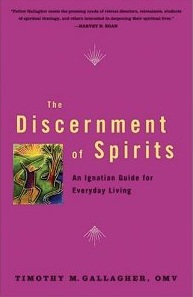 “The Discernment of Spirits: Setting the Captives Free” series is based on Fr. Gallagher’s book “Discern
“The Discernment of Spirits: Setting the Captives Free” series is based on Fr. Gallagher’s book “Discern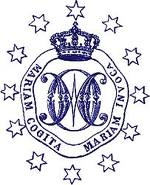 ment of Spirits” published by Crossroads Books.
ment of Spirits” published by Crossroads Books.
.
For more information on the work of Fr. Timothy Gallagher check out his website
.
For the other episodes in this series check out Fr. Timothy Gallagher’s “Discerning Hearts†page
Tags: evil, ewtn, spiritual formation, work
This entry was posted on Thursday, September 5th, 2013 at 8:34 am
You can follow any responses to this entry through the RSS 2.0 feed.
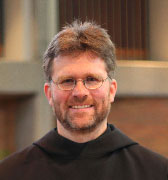 Episode 3 – The Holy Rule of St. Benedict: A Spiritual Path for Today’s World with Fr. Mauritius Wilde O.S.B., PhD.
Episode 3 – The Holy Rule of St. Benedict: A Spiritual Path for Today’s World with Fr. Mauritius Wilde O.S.B., PhD.
In place of the disability to express ourselves, to sing
[powerpress]
From the Holy Rule of St. Benedict:
CHAPTER XIX
We believe that God is present everywhere and that the eyes of the Lord behold the good and the bad in every place (cf Prov 15:3). Let us firmly believe this, especially when we take part in the Work of God. Let us, therefore, always be mindful of what the Prophet saith, “Serve ye the Lord with fear” (Ps 2:11). And again, “Sing ye wisely” (Ps 46[47]:8). And, “I will sing praise to Thee in the sight of the angels” (Ps 137[138]:1). Therefore, let us consider how it becometh us to behave in the sight of God and His angels, and let us so stand to sing, that our mind may be in harmony with our voice.
Father Mauritius Wilde, OSB, Ph.D., did his philosophical, theological and doctoral studies in Europe. He is the author of several books and directs retreats regularly. He serves as Prior of our monastery in Schuyler.
 For more information about the ministry of the the Missionary Benedictines of Christ the King Priory in Schuyler, Nebraska visit here:
For more information about the ministry of the the Missionary Benedictines of Christ the King Priory in Schuyler, Nebraska visit here:
Tags: Holy Rule of St. Benedict, Mauritius
This entry was posted on Wednesday, August 28th, 2013 at 10:14 pm
You can follow any responses to this entry through the RSS 2.0 feed.
St. Hildegard and  “Conversatio Morum – the Conversion of Life” – The Mystery of Faith in the Wisdom of the Saints
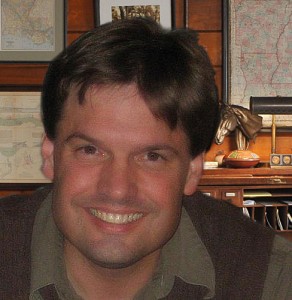
[powerpress]
Benedictine Spirituality and Lectio Divina…a “way of being”. Â In part one of this particular teaching, Dr. Lilles discusses the life St. Hildegard of Bingen and her expression of Benedictine teaching.
Dr.Anthony Lilles is a Catholic husband and father of three teaching Spiritual Theology at St. John Vianney Theological Seminary. He  teaches spiritual theology and spiritual direction to transitional deacons, and the spiritual classics to the men who enter the Spirituality Year, a year of prayer in preparation for seminary formation.  He is the author of the “Beginning to Pray”  Catholic blog spot.
For other episodes in the series visit the Discerning Hearts page for Dr. Anthony Lilles
Tags: Anthony Lilles, catholic, catholic podcast, catholic prayer, cathollc spirituality, Discerning Hearts, prayer, Spirituality Year, st. hildegard
This entry was posted on Wednesday, August 28th, 2013 at 9:43 pm
You can follow any responses to this entry through the RSS 2.0 feed.
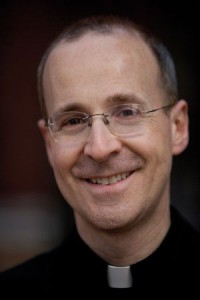 Here is a special interview we had with Fr. James Martin, SJ discussing St. Ignatius of Loyola
Here is a special interview we had with Fr. James Martin, SJ discussing St. Ignatius of Loyola
[powerpress]
ADDRESS OF HIS HOLINESS BENEDICT XVI
TO THE FATHERS AND BROTHERS OF THE SOCIETY OF JESUS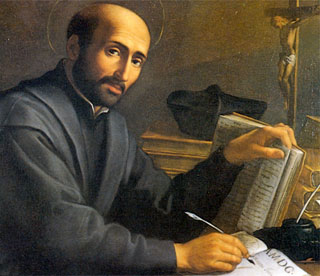
Vatican Basilica
Saturday, 22 April 2006 Â from vatican.va
Dear Fathers and Brothers of the Society of Jesus,
I meet you with great joy in this historical Basilica of St Peter’s after the Holy Mass celebrated for you by Cardinal Angelo Sodano, my Secretary of State, on the occasion of combined jubilees of the Ignatian Family. I address my cordial greeting to you all.
I greet in the first place the Superior General, Fr Peter-Hans Kolvenbach, and thank him for his courteous words expressing your common sentiments to me. I greet the Cardinals with the Bishops and priests and all those who have desired to participate in this event.
Together with the Fathers and Brothers, I also greet the friends of the Society of Jesus present here, and among them, the
many men and women religious, members of the Communities of Christian Life and of the Apostolate of Prayer, the students and alumnae with their families from Rome, from Italy and from Stonyhurst in England, the teachers and students of the academic institutions and the many collaborators.
Your visit today gives me the opportunity to thank the Lord with you for having granted your Society the gift of men of extraordinary holiness and exceptional apostolic zeal, such as St Ignatius of Loyola, St Francis Xavier and Bl. Peter Faber. For you they are the Fathers and Founders: it is therefore appropriate that in this centenary year you commemorate them with gratitude and look to them as enlightened and reliable guides on your spiritual journey and in your apostolic activities.
St Ignatius of Loyola was first and foremost a man of God who in his life put God, his greatest glory and his greatest service, first. He was a profoundly prayerful man for whom the daily celebration of the Eucharist was the heart and crowning point of his day.
Thus, he left his followers a precious spiritual legacy that must not be lost or forgotten. Precisely because he was a man of God, St Ignatius was a faithful servant of the Church, in which he saw and venerated the Bride of the Lord and the Mother of Christians. And the special vow of obedience to the Pope, which he himself describes as “our first and principal foundation” (MI, Series III, I., p. 162), was born from his desire to serve the Church in the most beneficial way possible. (more…)
Tags: american magazine, celebration, fr. james martin, heart, James Martin, st. ignatius, st. ignatius of loyola
This entry was posted on Wednesday, July 31st, 2013 at 1:45 am
You can follow any responses to this entry through the RSS 2.0 feed.
Praying to Saints
[powerpress]
On this faith check let’s answer the question, “why pray to a saint when you can pray straight to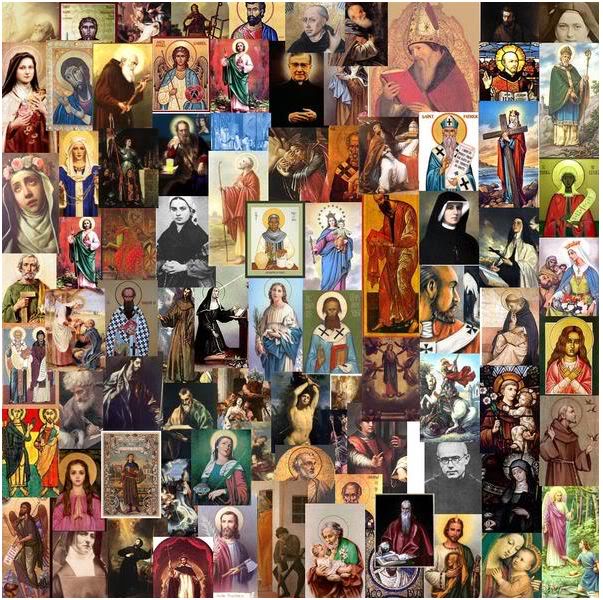 God?â€
God?â€
Of course, Catholics can and do pray straight to God. But we also pray to saints, not to worship them, but simply to ask for their prayers on our behalf, just like we ask our friends on earth to pray for us.
In the communion of saints we are spiritually connected to believers in the here and now and in the hereafter. For instance, Hebrews tells us we are surrounded by a “great cloud of witnesses,â€1 who are aware of what’s going on here. We read in Revelation that the prayers of the elders and saints in heaven are ascending before the throne of God.2
The prayers of the saints are powerful because they have been perfected in God’s grace and as St. James says, “the fervent prayer of the righteous has great power.â€3
Early Christian writings demonstrate that this practice was not a later corruption, but goes back to the very first centuries of Christianity. So let us join with Christians of all ages in saying “all you holy men and women, pray for us!â€
1 -Â 12:1
2 -Â 5:8; 8:3; etc.
3 -Â 5:16
Tags: cloud of witnesses, communion of saints, faith, prayers, prayers of the saints, praying to saints, saints, women
This entry was posted on Monday, July 29th, 2013 at 12:09 am
You can follow any responses to this entry through the RSS 2.0 feed.
A Prayer to St. Christina
[powerpress]
Today is the feast day of St. Christina the Astonishing. Why is she astonishing…well, if everyone thought you were dead and during the course of your funeral you shot up and proceeded to levitate to the rafters of the church, they’d probably call you astonishing too. Now I’ve been known to fly into a panic and fly into a rage, and I even fly to Costco for a good deal…but fly in church? Nope, not me. But all things are possible, with God. This is just one of the stories I read about her a long time ago in an old version of Bulter’s Lives of the Saints.  What else do we know:
After her death experience, she related that she had witnessed heaven, hell, and purgatory. It is written that she said “As soon as my soul was separated from my body it was received by angels who conducted it to a very gloomy place, entirely filled with souls” where the torments there that they endured “appeared so excessive” that it was “impossible to give an idea of their rigor.”
She continued,”I saw among them many of my acquaintances” and touched deeply by their sad condition asked if this was Hell, but was told that it was Purgatory. Her angel guides brought her to Hell where again she recognized those she had formerly known. Next she was transported to Heaven, “even to the Throne of Divine Majesty” where she was “regarded with a favorable eye” and she experienced extreme joy and these words were spoken to her, ” Assuredly, My dear daughter, you will one day be with Me. Now, however, I allow you to choose, either to remain with Me henceforth from this time, or to return again to earth to accomplish a mission of charity and suffering. In order to deliver from the flames of Purgatory those souls which have inspired you with so much compassion, you shall suffer for them upon earth: you shall endure great torments, without however dying from their effects. And not only will you relieve the departed, but the example which you will give to the living, and your continual suffering, will lead sinners to be converted and to expiate their crimes. After having ended this new life, you shall return here laden with merits.”
Christina, at hearing this and “seeing the great advantages for souls” without hesitation she agreed to return to life and arose that same moment. She told those around her that for the sole purpose of relief of the departed and conversion of sinners did she return and that none should be astonished at the penances that she would practice, nor the life that she would lead hence forth, she is quoted as saying, “It will be so extraordinary that nothing like it has ever been seen.” Making penances for the souls of Purgatory and Hell would henceforth become a major theme in her life.
As chronicled by her contemporaries, she threw herself into burning furnaces and there suffered great tortures for extended time uttering frightful cries, yet coming forth with no sign of burning upon her. In winter she would plunge into the frozen Meuse River for hours and days and weeks at a time all the while praying to God and imploring His Mercy. She allowed herself to be carried by the currents down river to the mill where the wheel “whirled her round in a manner frightful to behold” yet she had no dislocations or broken bones. She was chased by dogs that bit and tore her flesh. She ran from them into thickets of thorns, and though covered in blood she would return with no wound or scar.
Christina died in 1224 of natural causes, aged 74. – Wikipedia
After reading this, maybe you might want to, at least, pray with St. Christina the Astonishing, for the Poor Souls in Puragatory…click on this link to join in
Tags: angels, conversion, death experience, feast day, hell and purgatory, His Mercy, Meuse River, mission, saints, suffering, women of the middle ages
This entry was posted on Wednesday, July 24th, 2013 at 12:02 am
You can follow any responses to this entry through the RSS 2.0 feed.
Episode 1 -Listening For Truth– Introduction. Making moral judgments. What are the boundaries? Giving God time to reach us. Knowing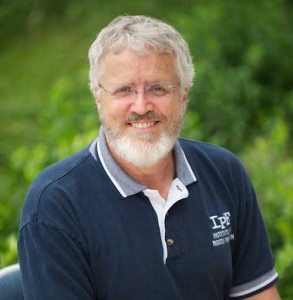 how we are being guided properly.
how we are being guided properly.
[powerpress]
Deacon James Keating, PhD, the director of Theological Formation for the Institute for Priestly Formation, located at Creighton University, in Omaha, is making available to â€Discerning Hearts†and all who listen, his series of programs entitled “Listening For Truthâ€.
 Listening for Truth leads men and women in a search for a fuller experience of God that begins in prayer, grows in the rediscovery of our spiritual being, and grounds itself in the truth of Jesus Christ. A presentation of the Christian life as an engagement of the whole person — body, mind, and soul — in the challenge of daily living.
Listening for Truth leads men and women in a search for a fuller experience of God that begins in prayer, grows in the rediscovery of our spiritual being, and grounds itself in the truth of Jesus Christ. A presentation of the Christian life as an engagement of the whole person — body, mind, and soul — in the challenge of daily living.
For more information on the “Institute of Priestly Formation†and for other material available by Deacon Keating, just click here
Don’t forget to pickup a copy of “Communion with Christ†, it is one of the best audio sets on prayer…ever!
Check out Deacon Keating’s “Discerning Heart†page
Tags: creighton university, Deacon James Keating, Giving God, prayer
This entry was posted on Monday, July 22nd, 2013 at 10:43 am
You can follow any responses to this entry through the RSS 2.0 feed.
“The Will of God: Finding and Fulfilling Your Purpose in Life” is a great book which uses the great Psalm 119 to help us in the 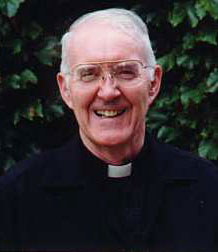 area of discernment.  Taking a lifetime of steeped  in prayer and sound theology, Fr. Baker gives us a unique and penetrating resource to aid in our growth in the areas of contemplation and discernment. Father Baker was the editor of Homiletic & Pastoral Review for more than 40 years, and currently serves as Editor Emeritus of the online edition.  He was a joy to talk with and to learn from….not to be missed for the discerning heart!
area of discernment.  Taking a lifetime of steeped  in prayer and sound theology, Fr. Baker gives us a unique and penetrating resource to aid in our growth in the areas of contemplation and discernment. Father Baker was the editor of Homiletic & Pastoral Review for more than 40 years, and currently serves as Editor Emeritus of the online edition.  He was a joy to talk with and to learn from….not to be missed for the discerning heart!
[powerpress]
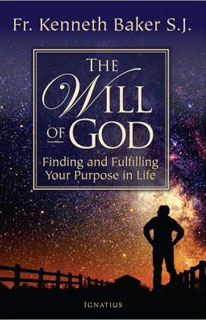 You can find the book here
You can find the book here
“Father Baker helps us to discover God’s will and, what is even more, important how to live God’s will! He uses the Holy Scriptures,the teaching of the Church and the saints to help us become holy and transformed into the saints that God created us to be. Read this book and discover what God wants you to do!” —Fr. Larry Richards, Author, Be a Man!
Tags: catholic, catholic podcast, catholic prayer
This entry was posted on Friday, May 24th, 2013 at 5:15 pm
You can follow any responses to this entry through the RSS 2.0 feed.
 Fr. George Montague is an exceptional biblical scholar, as well as a humble pastor.  His experience with the gifts given by the Holy Spirit are extraordinary and he shares those with us, but he also encourages us to seek the deepening of our own prayer lives so that we too may discover what the Father desires to give his beloved children. Through Scripture and the practice  of prayer, Fr. Montague helps to encounter the Holy Spirit who is eager for our response.  Bruce and I loved our conversation with him. Highly recommended!!
Fr. George Montague is an exceptional biblical scholar, as well as a humble pastor.  His experience with the gifts given by the Holy Spirit are extraordinary and he shares those with us, but he also encourages us to seek the deepening of our own prayer lives so that we too may discover what the Father desires to give his beloved children. Through Scripture and the practice  of prayer, Fr. Montague helps to encounter the Holy Spirit who is eager for our response.  Bruce and I loved our conversation with him. Highly recommended!!
[powerpress]
You can buy this book here
Tags: biblical scholar, George Montague, George Montague Fr, holy spirit, Montague
This entry was posted on Sunday, May 19th, 2013 at 12:31 am
You can follow any responses to this entry through the RSS 2.0 feed.
“The Devil You Don’t Know: Recognizing and Resisting Evil in Everyday Life” 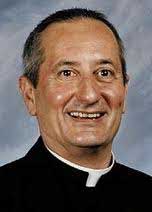 is not about some “sensationalistic” overview of the “creepy”, instead it is a solid resource for those seeking to vanquish the ordinary means in which evil disrupts and damages our spiritual lives.  Highly recommended, I’ve passed this book along to many.
is not about some “sensationalistic” overview of the “creepy”, instead it is a solid resource for those seeking to vanquish the ordinary means in which evil disrupts and damages our spiritual lives.  Highly recommended, I’ve passed this book along to many.
[powerpress]
You can find this book here
Publisher’s Weekly says it well:
In some ways, it’s easy to believe in a devil who makes heads spin round and enables people to levitate. Ubiquitous movies and books about possession and exorcism have trained spiritual seekers to identify evil by its expected Hollywood conventions. By contrast, Rev. Louis J. Cameli, nationally renowned pastoral leader and priest of the Archdiocese of Chicago, paints a challenging, unsettling portrait of the devil as a formidable adversary who works great harm, often in quiet, less-seen ways.
While remaining a fixture of popular culture, the devil has–until now–been largely ignored in contemporary spiritual writing. Cameli exposes the devil’s tactics of deception, division, diversion, and discouragement, in individuals and also in institutions. This thoroughly biblical, deft exploration considers the personal and social dimensions of sin, and offers both enlightenment and hope in the power of Christ at work to overcome evil.
Tags: catholic, catholic podcast, catholic prayer
This entry was posted on Friday, May 17th, 2013 at 7:19 am
You can follow any responses to this entry through the RSS 2.0 feed.
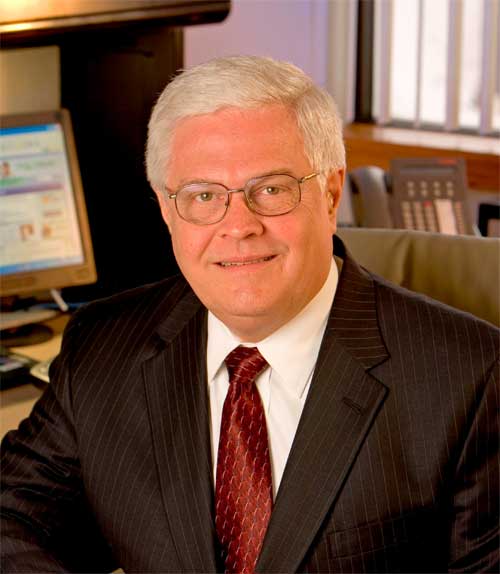 I cannot recommend a book more highly than this,  “Answer Your Call: Reclaim God’s Purpose For Faith, Family, and Work” is OUTSTANDING! The combined gifts of  Dick and Martha Lyles have brought us must a gem which serves as a practical everyday guide for prayer and discernment.  The book description below and the interview I have with Dick can provide just some of the reasons why this work is so important, but neither really goes far enough.  I have heard from so many men and women looking for spiritual directors, guides, mentors, anyone or anything that could help them to respond to that “still, small voice” deep inside themselves; here is the book I’ll now tell them to start with.  While this isn’t the answer to all questions and quests, this is work offers a great start and foundation.  Great for individual study, as well as for groups.  For pastors, deacons, pastoral ministers, parents, but most importantly, for the every day man or woman trying to “answer God’s call”!
I cannot recommend a book more highly than this,  “Answer Your Call: Reclaim God’s Purpose For Faith, Family, and Work” is OUTSTANDING! The combined gifts of  Dick and Martha Lyles have brought us must a gem which serves as a practical everyday guide for prayer and discernment.  The book description below and the interview I have with Dick can provide just some of the reasons why this work is so important, but neither really goes far enough.  I have heard from so many men and women looking for spiritual directors, guides, mentors, anyone or anything that could help them to respond to that “still, small voice” deep inside themselves; here is the book I’ll now tell them to start with.  While this isn’t the answer to all questions and quests, this is work offers a great start and foundation.  Great for individual study, as well as for groups.  For pastors, deacons, pastoral ministers, parents, but most importantly, for the every day man or woman trying to “answer God’s call”!
[powerpress]
 You can find the book here
You can find the book here
From the book description:
Answer Your Call helps Christians discern their purpose from a Catholic perspective—think of it as a Catholic response to The Purpose Driven Life. Building on the premise that every person has a unique set of natural gifts meant to be used in concert with God’s supernatural graces, readers will find practical insights on what prevents someone from hearing and responding to God’s call, as well as how to reclaim and live their calling in the home, workplace, and community. Answer Your Call goes beyond mere theory, using key questions, short quizzes, and practical exercises to help the reader implement the material. You’ll learn:
- What causes us to lose sight of God’s presence
- How we lose touch with our natural gifts
- The three dimensions of our divine call
- Understanding discernment in relation to purpose and call
- How you can plan to implement your call
Interspersed with Scripture and Catechism quotes, as well as wisdom from popes and saints, Answer Your Call will guide you to carry out God’s purpose in every dimension of your life.
Tags: catholic, catholic podcast, catholic prayer
This entry was posted on Monday, May 13th, 2013 at 10:41 am
You can follow any responses to this entry through the RSS 2.0 feed.
Episode 22 Beginning to Pray: Â St. Catherine of Siena

[powerpress]
From Dr. Lilles’ “Beginning to Pray” Â blog site:
Catherine of Siena – passion for truth
She is an important figure for those who see a rediscovery of prayer as the force of renewal in the Church. Because she put her devotion to Christ first, she found herself with a spiritual mission to help restore the life and unity of Christ’s body. Some of her efforts met with a little success. But as she approached her death at the age of 33, her lifetime of effort in building up the Church seemed to be in vain. Corruption, scandal, cowardice – and most of all indifference – seemed to infect the Church even more. (For more on her life, go tohttp://www.newadvent.org/cathen/03447a.htm.) Yet she never lost hope and she persevered in prayer. This is because she understood the love and mercy of God.She was uneducated, but in 1377, by a miracle, she learned to write. Even so she retained secretaries to whom she dictated most of her thoughts. Her master work on the spiritual life is known as the Dialogues. These are conversations between her soul and God the Father. God the Father reveals his deep love for his Son and his plan to build up the Church. One of the beautiful aspects of this conversation is the Father’s explanation for how each soul can come to know Jesus.
Christ is the bridge to the Father and we cross this bridge by allowing our hearts to be pierced by what the Lord has done for us. The passion of Christ reveals at once the truth about who God is and who we are in his sight. For her, among the greatest blocks to the spiritual life is ignorance. Knowledge of God and knowledge of self go hand in hand in progressing toward spiritual maturity. But the knowing is not simply an intellectual trip. It as the kind of knowing informed by the loving affection of a real friendship. The friendship she describes in tender terms evokes the deepest joys and sorrows all at once.
The gift of tears, so central to early Dominican spirituality, is a beautiful part of this description. She presents those holy affections as the only proper response to the great love revealed in Christ crucified. These tears move us away from sin and into the very heart of God. She describes this as a journey that begins with kissing the feet of Jesus and entering into his wounded side. For her, intimacy with the Lord is always through the Cross and informed by a profound gratitude and humility.
One other beautiful feature of her spirituality is her understanding of virtue. This understanding is not quite classical in that she goes beyond the generic definition of a virtue as a good habit. Instead, she addresses a problem that is related to life in the Church. She notices that different Christians excel at different virtues. One might have a special aptitude for the art of getting on with others and is a special source of justice in the community. Another may be especially able to enter into the heart of someone enduring great difficulty and brings to the Church a particular awareness of mercy. Still another might have a profound gift of prayer. The question she takes up is why has the Father given different gifts to different members of the Body of Christ.
In the Dialogues, the Father explains to her that He has distributed his bountiful gifts in this way so that each member of the Body of Christ must rely on all the other members and at the same time each member bears a particular responsibility to support the Body of Christ commensurate to the gifts he has been given. In other words, his has distributed his gifts in a manner that disposes us to love one another. And the Father is counting on this mutual love, this genuine fellowship. It is part of His plan that as we cross Christ the Bridge we enter into communion with Him not merely individually, but together as a family.
The family of God requires a new kind of love, a love which only God can give us. A beautiful foundation is laid for what will later be understood as a “call within a call,” that particular mission each one is entrusted with in the eternal loving plan of God. On one hand, answering this call involves some suffering – just as Mother Theresa in our own time discovered. But those who endure this would not have it any other way. There is a certain joy and fullness of life that one discovers when one generously embraces the loving plan of the Father. The possibility of this joyful fulness makes Catherine’s message to the Church dynamically attractive.
For those beginning to pray, Catherine sheds light on the importance of truth, devotion to Christ and the life of the Church. These things organically hang together in her vision of the spiritual life so that growing in prayer goes beyond the merely therapeutic: it opens up the possibility of fully thriving, of living life to the full.
Dr. Anthony Lilles is a Catholic husband and father of three teaching Spiritual Theology at St. John Vianney Theological Seminary. He  teaches spiritual theology and spiritual direction to transitional deacons, and the spiritual classics to the men who enter the Spirituality Year, a year of prayer in preparation for seminary formation.  He is the author of the “Beginning to Pray”  catholic blog spot.
For other episodes in the series visit the Discerning Hearts page for Dr. Anthony Lilles
Tags: Anthony Lilles, Church, prayer, spiritual life, st catherine of siena
This entry was posted on Monday, April 29th, 2013 at 7:26 am
You can follow any responses to this entry through the RSS 2.0 feed.

